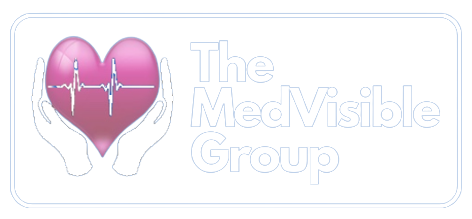The Patient as the Ultimate Consumer
July 19, 2023
In the rapidly evolving landscape of the healthcare industry, one thing remains constant: patients are at the heart of it all. The concept of patient-centricity has gained significant traction in recent years, signifying a paradigm shift in healthcare management. Patients are no longer passive recipients of care but are now regarded as empowered consumers. This transformation has been fueled by an array of factors, including technological advancements, regulatory changes, and a growing demand for personalized care experiences.
As seasoned Healthcare Management consulting professionals, we recognize the pivotal role patients play in the success of any healthcare organization. In this article, we delve into the importance of embracing patients as the ultimate consumers and highlight current industry trends that reinforce this perspective. Moreover, we explore the potential risks and benefits of prioritizing patient-centricity and provide insights into how companies can effectively prepare for this transformative journey, guided by experienced consulting professionals who comprehend both healthcare industry requirements and the crucial patient perspective.
Observing Current Industry Trends
The shift towards patient-centricity is palpable in various industry trends:
1. Value-Based Care: Healthcare systems are transitioning from a fee-for-service model to one that emphasizes value-based care. This approach aligns incentives with patient outcomes, encouraging providers to focus on quality, preventive measures, and patient satisfaction.
2. Digital Transformation: Technology is revolutionizing healthcare. Telemedicine, wearable devices, and health apps empower patients to actively participate in their healthcare decisions and monitor their well-being in real-time.
3. Personalization and Patient Experience: Healthcare providers now understand the significance of personalized care experiences. Tailoring treatments to individual needs fosters patient loyalty and satisfaction.
4. Patient Engagement and Education: Informed patients are more likely to make better healthcare decisions. As a result, healthcare organizations are investing in patient education and engagement initiatives.
The Potential Risks and Benefits of Embracing Patient-Centricity
Potential Risks:
1. Privacy and Security Concerns: Increased access to patient data for personalized care also raises privacy and security challenges. Healthcare organizations must implement robust safeguards to protect patient information from breaches.
2. Resistance to Change: Some healthcare professionals may be resistant to a patient-centric approach, leading to organizational friction during the transformation process.
Potential Benefits:
1. Enhanced Patient Outcomes: Prioritizing patient needs can lead to better health outcomes as patients become more engaged in their own care.
2. Improved Patient Loyalty: Satisfied patients are more likely to stay loyal to healthcare providers, increasing retention and word-of-mouth referrals.
3. Greater Efficiency and Cost Savings: By proactively addressing patient needs and preventing health complications, healthcare organizations can reduce overall costs and improve resource utilization.
4. Competitive Advantage: In an increasingly competitive market, patient-centricity can set healthcare organizations apart, attracting more consumers and partners.
Strategies for Success
To prepare for the patient-centric era, healthcare organizations must leverage the expertise of seasoned Healthcare Management consulting firms, who possess a dual understanding of industry requirements and the crucial patient perspective. Here are key strategies to navigate this transformation:
1. Patient Journey Mapping: Work closely with consulting professionals to map out the patient journey, identifying touchpoints where patient experience can be enhanced.
2. Data Analytics and Insights: Utilize data analytics to understand patient preferences, behaviors, and expectations, enabling personalized care delivery.
3. Cultural Shift and Training: Foster a culture that prioritizes patient-centricity throughout the organization. Conduct training sessions to familiarize staff with the new approach and its significance.
4. Technology Integration: Embrace digital solutions that enhance patient engagement and enable seamless communication between patients and providers.
5. Regulatory Compliance: Consulting professionals can assist in ensuring that patient-centric initiatives align with regulatory standards and data privacy laws.
The patient as the ultimate consumer is an undeniable reality in the modern healthcare landscape. Embracing patient-centricity is not only a strategic imperative but also a moral obligation to provide the best possible care. By partnering with seasoned Healthcare Management consulting professionals, healthcare organizations can navigate the challenges, capitalize on the benefits, and pave the way for a patient-centric future, where improved outcomes and satisfied consumers drive success. Let us embark on this transformative journey together and build a healthcare ecosystem that places patients at the core of everything we do.
